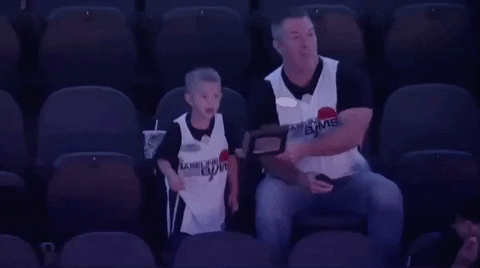- The Affluent Factor
- Posts
- Edition 24036 ~ Rates Dropping Slightly & Investors Surging
Edition 24036 ~ Rates Dropping Slightly & Investors Surging
Plus: Chuck E. Cheese, MLS Books, and How to Say "Realtor" Right

Dive into our latest newsletter exploring the seismic shifts in real estate: from the investor surge in affordable home purchases, the rollercoaster bond market's impact on realtors, to the heated debate over commission lawsuits. Uncover how these trends are reshaping the landscape of American homeownership, challenging the traditional dynamics of buying and selling, and sparking fiery discussions on the future of real estate. Don't miss out on understanding the forces at play in today's market – your guide to navigating the complexities of modern real estate awaits.
~TB
Your Daily Dose
The Investor Surge: A Deep Dive into the Record-Breaking Quarter for Affordable Home Purchases
In a market that's increasingly becoming the playground of investors, the last quarter of 2023 has set a new precedent.

With a staggering 26% of the country's most affordable homes being snapped up by investors, we're witnessing a shift that could redefine the landscape of American homeownership. But what's driving this investor frenzy, and more importantly, what does it mean for the average American looking to buy a home?
The Unquenchable Investor Thirst for Affordable Homes
At the heart of this trend lies a simple economic principle: the search for value. Elevated home prices, coupled with mortgage rates that have continued to pressurize the market, have turned investors' eyes towards the more affordable segments. These low-priced homes, which now account for a record 26.1% of sales, offer a tantalizing opportunity for those looking to maximize returns in a market that's becoming increasingly difficult to navigate for the average buyer.
A Market at a Crossroads
While the overall number of homes purchased by investors has seen a slight decline of 11% from the previous year, the appetite for affordable homes has not waned. This shift towards more economical options is not just a reflection of the market's current state but a potential indicator of where it's headed. With a significant portion of these purchases concentrated in areas like Florida and California, the question arises: are we seeing a strategic pivot by investors towards markets with higher growth potential, or is this a temporary adjustment in response to current market conditions?
The Impact on the American Dream
The implications of this trend extend far beyond the investment community. For many Americans, the dream of homeownership is becoming increasingly elusive. The competition from investors, particularly in the affordable housing segment, is not just driving up prices but also reducing the available inventory for first-time homebuyers. This raises a critical question: what will the long-term impact be on the fabric of American communities if this trend continues?
What's Your Take on the Investor Impact?
With investors buying up a record share of the country’s most affordable homes, how do you think this trend will affect the future of homeownership for first-time buyers and the overall health of our communities?
Navigating the Shifts: Strategies for Buyers and Sellers
Given the current market dynamics, where investors are increasingly targeting affordable homes, what strategies do you believe buyers and sellers should adopt to navigate these changes successfully?
Policy Solutions: Balancing Investment and Accessibility
What policy measures do you think could effectively balance the interests of investors with the need to keep homeownership accessible for the average American?
Navigating the Future
As we look towards the future, it's clear that the dynamics of the housing market are shifting. Investors, drawn by the potential for value in a high-cost environment, are playing an increasingly significant role. However, the challenge for policymakers and industry stakeholders will be to balance this investor activity with the needs of traditional homebuyers. Ensuring that the American dream of homeownership remains accessible to all will be crucial in maintaining the health and vibrancy of our communities.
In conclusion, the record-breaking quarter for investor home purchases signals a pivotal moment for the housing market. As we navigate this changing landscape, the decisions made today will have lasting implications for generations to come. The balance between investment and accessibility will be key in shaping the future of American homeownership.

The Bond Market's Roller Coaster: What Realtors Need to Know
Yo! Have you been feeling the ups and downs in the housing market lately?

Well, you're not alone. The bond market has been on a bit of a roller coaster, and it's having a big impact on mortgage rates and, by extension, your day-to-day business. Currently the average 30 yr fixed rate sites at 7.03%. Let's break it down in a way that's easy to understand.

A Glimpse into the Bond Market
First off, the bond market is like the backstage of the financial world. It's where the government and companies go to borrow money. When bond prices go up, the yields, or the interest rates on these bonds, go down. And guess what? Mortgage rates tend to follow these yields. So, when bond yields are low, mortgage rates are usually low too, making it cheaper for people to borrow money to buy homes.
Recent Trends and Their Impact
Lately, we've seen some modest recovery in mortgage rates, with a slight dip that gave us a bit of hope. But don't get too comfy—the trend is still pointing towards higher rates. This means borrowing costs might continue to rise, making it a bit tougher for buyers to jump into the market.
How Are Changing Mortgage Rates Affecting Your Clients?
With mortgage rates trending higher, how are your clients adjusting their home buying or selling strategies? Are they speeding up their search to lock in rates, waiting it out, or changing their budget expectations?
Strategies for Navigating Economic Uncertainty in Real Estate:
Given the recent economic data and its impact on consumer spending and the housing market, what strategies are you employing to guide your clients through these uncertain times? Are there any particular challenges or opportunities you've identified?
The Future of Home Buying and Selling:
Considering the current trends in the bond market and their influence on mortgage rates, what are your predictions for the real estate market in the coming months? How are you preparing your clients for potential shifts in the market?
Then, there's been some resilience in the bond market, showing gains even after a big sell-off. This resilience is crucial because it helps keep mortgage rates from skyrocketing. However, it's not guaranteed to last, especially with economic data playing a big role in what happens next.
And speaking of economic data, retail sales have taken a hit, showing that consumers are feeling the pinch. This is important because if people are spending less, it could mean they're less likely to take out mortgages, affecting demand for homes.
What This Means for Realtors
So, what does all this mean for you, the Realtor? Here are a few key takeaways:
Be Prepared for Rate Changes: Keep an eye on mortgage rates. They can change quickly, and you'll want to advise your clients accordingly. Whether it's locking in a rate for a new homebuyer or understanding the best time to list, staying informed will make you a valuable resource.
Understand Buyer Sentiment: With economic uncertainty, some buyers might be hesitant. It's your job to understand their concerns and help navigate them through these times. This might mean discussing financing options or the long-term value of homeownership.
Stay Flexible: The market is always changing, and flexibility is key. Whether it's adjusting marketing strategies for homes or exploring different segments of the market, being adaptable will help you thrive.
In conclusion, the bond market's fluctuations are more than just financial news—they're directly tied to the real estate market and can affect your business in real ways. By staying informed and adaptable, you can navigate these changes and continue to succeed in the world of real estate. Keep riding the roller coaster, and remember, every dip comes with a rise!

Newsletters We Recommend
Here are three newsletters I love reading and I believe you would too.

Chuck E. Cheese, MLS Books, and How to Say "Realtor" Right: The Real Estate Rumble of the Century
Alright, strap in, because we're about to take a wild ride into the heart of a real estate rumble that's hotter than a summer sale in Phoenix.

Picture this: Anthony Lamacchia, the big boss at Lamacchia Realty, squares off against Michael Ketchmark, the courtroom gladiator for the folks suing over some serious commission beef in the Sitzer-Burnett showdown. Why? Because Lamacchia got all fired up over Ketchmark painting realtors as the bad guys in a heist movie, calling them a "cartel" and slinging mud about shady money moves.
So, there they were, on HousingWire's digital stage, throwing down like it was a pay-per-view event. We're talking a no-holds-barred clash over the nitty-gritty of commission checks, the secret society of MLS listing books, and whether the moral compass in real estate is pointing north or taking a nap. This wasn't just a debate; it was a verbal cage match, diving deep into the lore and legends of housing hustles, laying bare the soul of the industry.
Their back-and-forth was like watching a tennis match with words instead of rackets, serving up spicy takes and slicing through the air with razor-sharp retorts. It was a showcase of the real estate world's family drama, with all its feuds and alliances, playing out in real-time.
So, there they were, squared up over Zoom, ready to duke it out over the Sitzer-Burnett commission lawsuit. This wasn't just any debate. It was like watching two uncles argue over the last piece of Thanksgiving pie, but with more legal jargon and less cranberry sauce.
Lamacchia kicked things off, basically saying he decided to throw his hat in the ring after Ketchmark went on CNBC and called realtors a cartel. Yeah, you heard that right. Not the kind of thing you say unless you're ready to have every real estate agent in the country come at you like you're the last open house on a Saturday.
Ketchmark, though, he's not backing down. He's like, "Look, I love realtors. I just don't love how the game is played." He even pulled out an old-school MLS listing book, the kind that used to be the secret handshake of the real estate world. According to him, those books were tighter than Fort Knox, and sharing them was a bigger faux pas than wearing white after Labor Day.
And then, just when you thought it couldn't get any spicier, Lamacchia corrects Ketchmark's pronunciation of "Realtor." It's like correcting someone's grammar on the internet, but with more at stake than just your ego.
The debate was more than just a verbal sparring match; it was a deep dive into the heart of the real estate industry, from commission structures to the sacred texts of MLS listings. It was a battle of ideals, a clash of titans, all wrapped up in a Zoom call that probably had the audience popping popcorn and grabbing front-row seats from their living rooms.
In the end, what did we learn? Well, for starters, how to say "Realtor" correctly. But more importantly, that the real estate world is as complex and contentious as ever, with no shortage of drama, debate, and, yes, even a little bit of Chuck E. Cheese-level fun. So, whether you're in the market for a new home or just love a good industry throwdown, this debate was one for the history books—or at least, the MLS listings.

READ DAILY BY 40,000+ REALTORS, LOAN ORIGINATORS & INDUSTRY PROS



Reply